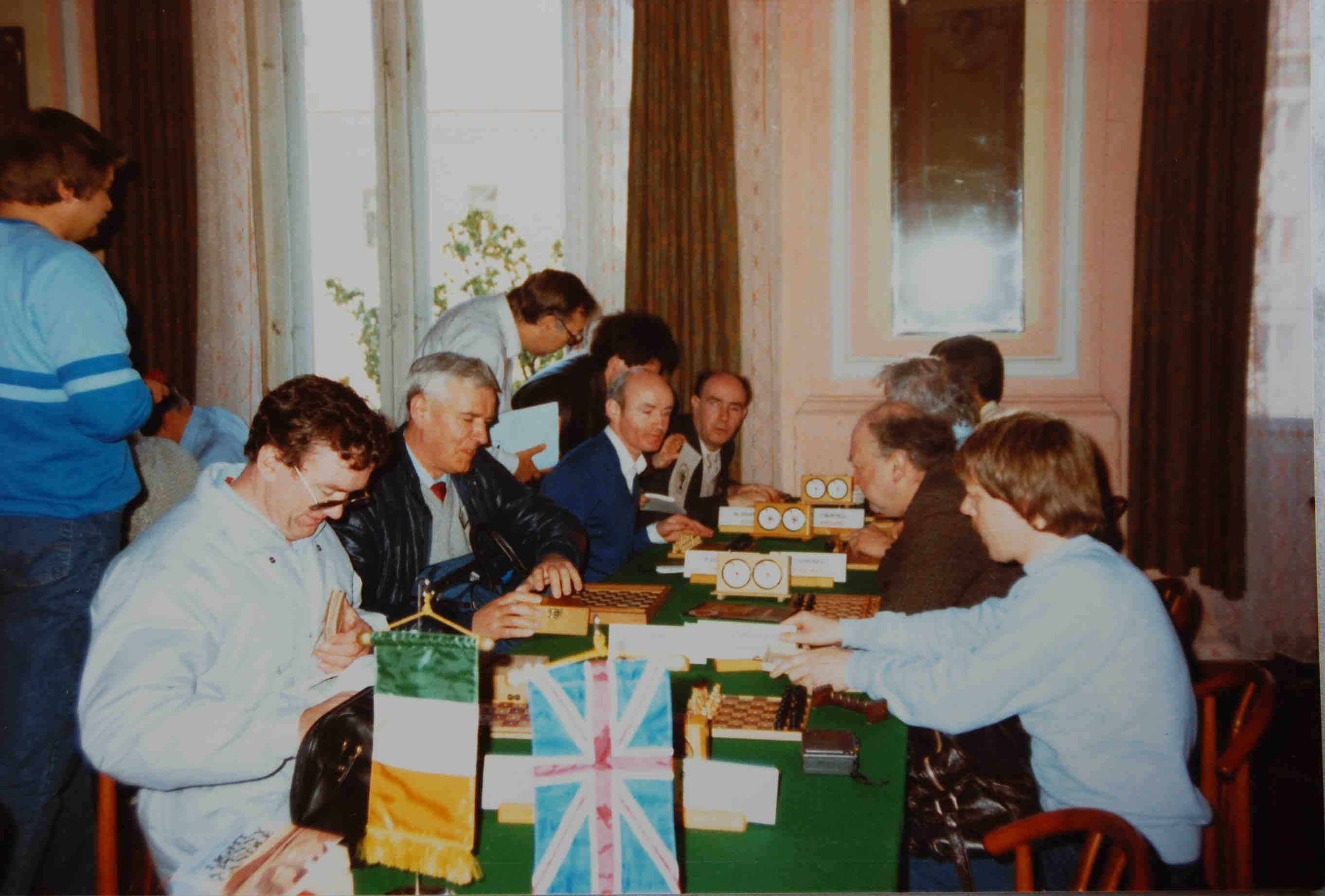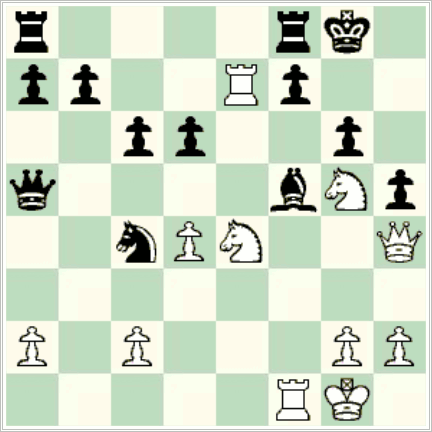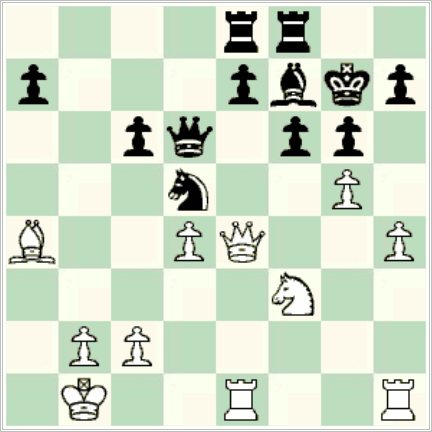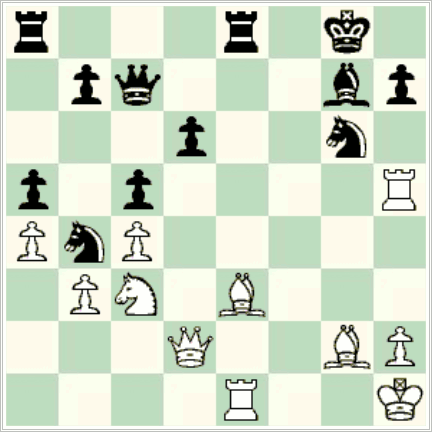Players allegedly placed out of order in violation of the rules … objections lodged … draconian penalties applied, affecting the fate of the entire season … this describes the Armstrong Cup. The season 1891-92 of the Armstrong Cup, to be exact (see Boards.ie, message #191 onwards, for the messy and still unresolved issues surrounding the season 2017-18).
William Armstrong B.L. donated the cup in 1888, and the first three winners were Phoenix, Clontarf, and Dublin University. For the fourth season, five teams entered, but Kingstown withdrew. The remaining four were to play each other home and away. Matches were over six boards, and only match results counted.
The final table, as shown in a report (author unknown) in BCM in November 1892 (pages 485-88), was:

On the face of it, the outcome could hardly have been clearer. The BCM report, however, went on to describe a tangled sequence of meetings, resolutions, and votes, allegedly valid and invalid, and a startling conclusion:
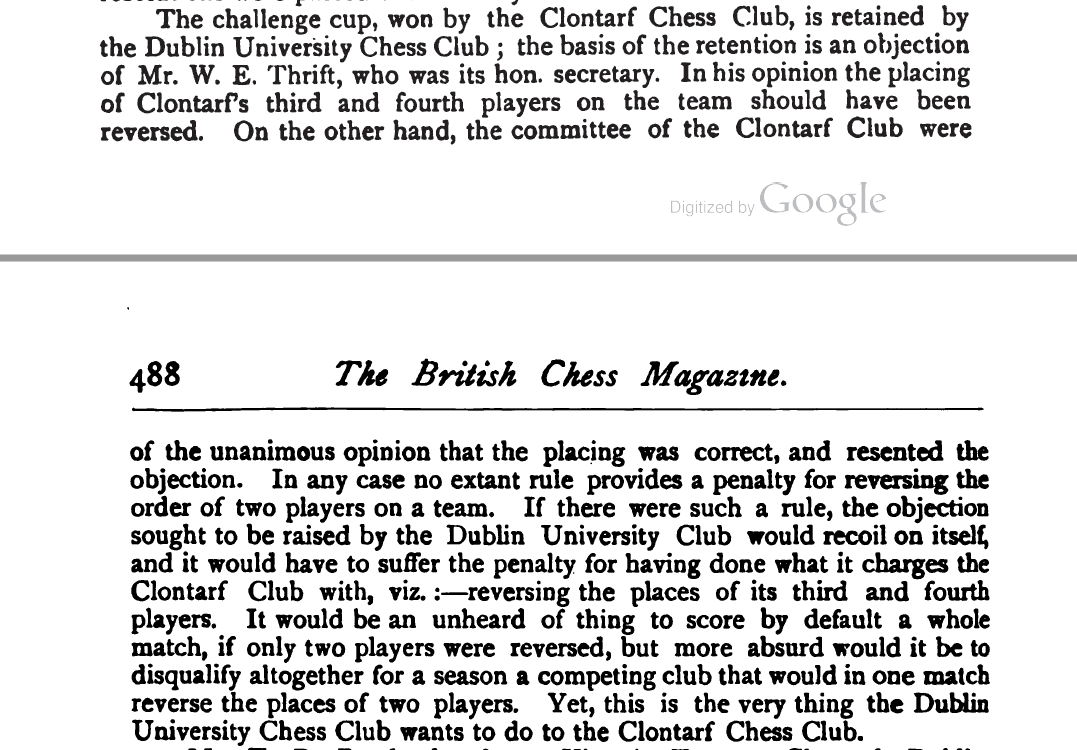
The following month’s issue featured a reply from six prominent officials (page 539) that made it clear that Clontarf had indeed been disqualified, and no award of the Cup made for the season:
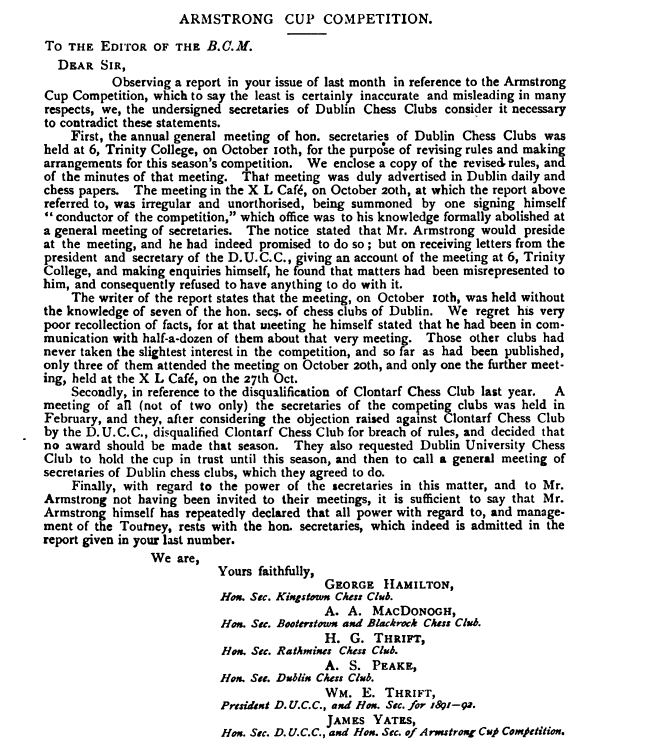
This is very mysterious to modern eyes. How could switching boards three and four—three quarters of a century before any rating system existed—invalidate an entire season’s results, especially when the margin of victory was so large?
Taking the timeline into account goes some way towards understanding the puzzle but is still not quite a satisfactory explanation. The season ran from December 15, 1891 to March 24, 1892, according to the November 1892 BCM report, and, from the same source, “on February 18th it was known that [Clontarf’s] lead could not be overtaken”. From a combination of an Irish Times report on February 11 (scores of all teams) and a Freeman’s Journal report on February 25 (score of City-Clontarf match played on February 18), the scores after February 18 must have been:
|
W |
D |
L |
| Clontarf |
5 |
1 |
0 |
| City |
1 |
0 |
2 |
| Rathmines |
1 |
1 |
2 |
| Dublin University |
0 |
2 |
3 |
Clontarf’s lead could therefore only not have been overtaken if all then-existing scores stood, but that could have changed if board order objections altered match results. Clontarf were accused of switching their boards 3 and 4 (Charles Drury and S. Templeton) in both matches against Dublin University. The first match between these teams was drawn (no scorecard available). The second ended 3½-1½ to Clontarf with 1 adjourned at the close of the first session; in this match Drury was placed on board 4 and received a walkover, whereas on board 3 Templeton did not appear and Dublin University’s W. E. Thrift received a walkover. Could these mismatched walkovers have caused some of the bitterness that is evident in the competing reports? It’s quite possible that penalizing Clontarf on both boards in both matches would have resulted in a match win for Dublin University in each case. That would have left Clontarf with 4 wins and 2 losses for the season, in which case they could have been caught, though not overtaken, by City, if it won all its remaining matches. In the event, City won both matches against Rathmines, but lost against Dublin University.
The meeting at which Clontarf was disqualified, and the season annulled, was held on February 24, 1892. The City v. Dublin University match was scheduled for February 23 (Irish Times report of February 11). It may have been that the match was still undecided when the disqualification vote occurred. Still, it seems a debatable decision, if there were no other factors.
There seems to have been a disagreement between Clontarf and Rathmines concerning their first match, and Rathmines conceded a 6-0 walkover in the return match. The Hon. Sec. of Rathmines C.C. was H. G. (Henry George) Thrift, and the Hon. Sec. of Dublin University was his son, W. E. (William Edward) Thrift. Another signer of the BCM letter above was the Hon. Sec. of Booterstown & Blackrock C.C., A. A. MacDonogh. Since Booterstown & Blackrock did not participate in the 1891-92 Armstrong Cup, he played for Dublin University during that event. According to one account of the February 24 meeting, he cast City’s vote.
All in all the matter is strange. From what is known of the results themselves, the modern approach would be to apply appropriate smaller penalties, which would not have denied Clontarf the championship. But we must be missing some of the context: opinion among the secretaries of the Dublin clubs seems to have been essentially unanimously against Clontarf in this matter.
